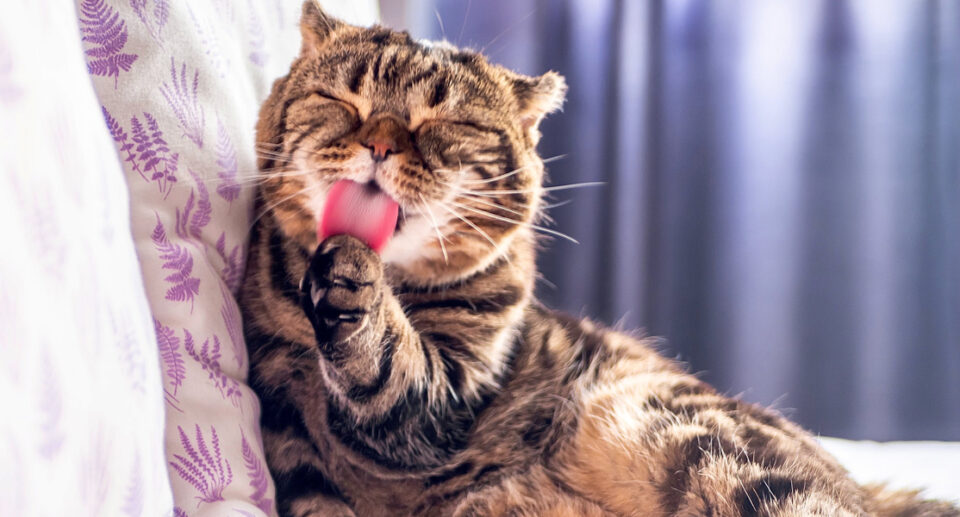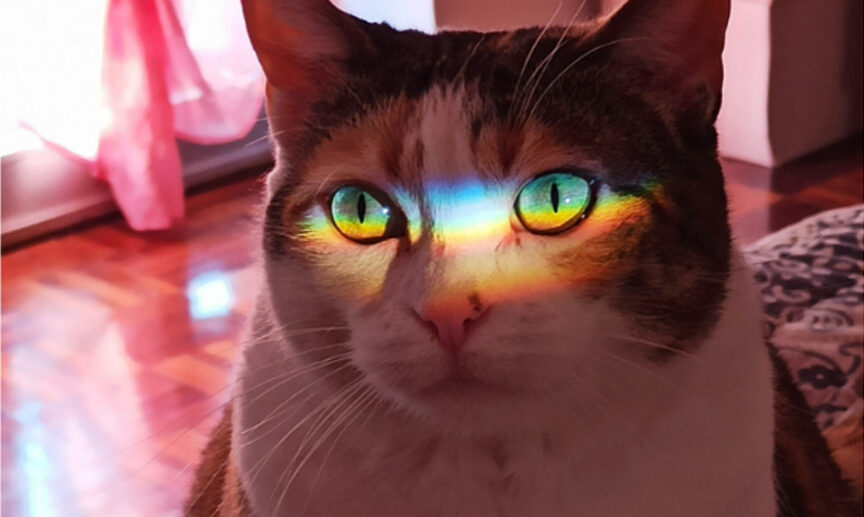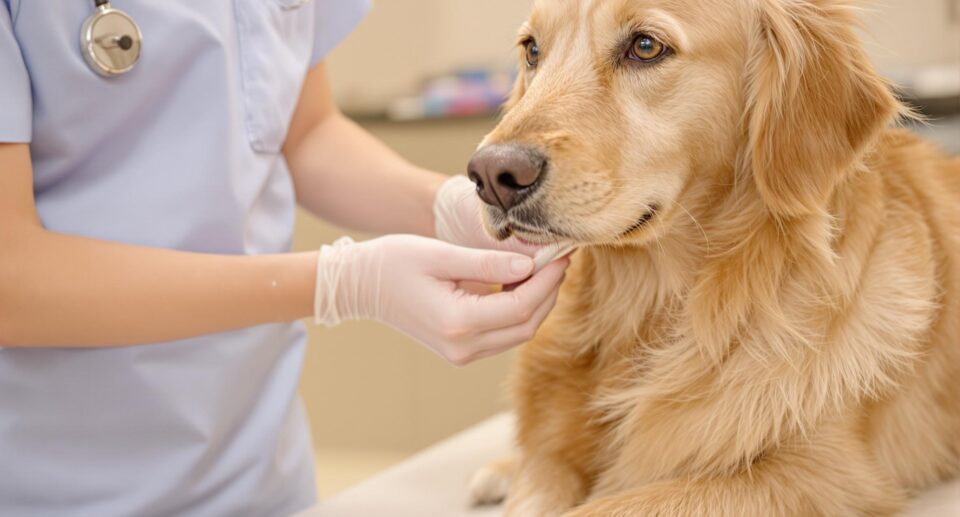
When you get licked by a dog, their tongues feel slimy and full of saliva. On the other hand, when you get licked by a cat, it feels as if your cat just dragged a tiny piece of sandpaper across your skin. It’s so rough that when they remove their tongue it’s almost surprising your skin is still intact.
The reason for the rough, sandpaper feeling is that cats’ tongues are covered with papillae, which look like tiny, backward-facing barbs. Papillae are made up of keratin, which is a protein also found in human fingernails and hair.
The papillae on a cat’s tongue play a very important role in the life of a cat. Cats spend most of their waking hours grooming. When doing so, the papillae can help detangle any knots in the fur, grab debris, and trap any loose strands of hair that come loose during grooming. Any loose strands that are caught are usually swallowed, which leads to cats coughing up hairballs.
They also play an important factor when it comes to hunting for prey. Not only do the curved barbs help cats hold their prey, but it also helps them tear through flesh, and pick up any small pieces that might have been missed. Afterwards, cats will groom themselves to get rid of any traces of a kill in order to prevent any predators from picking up the scent.





